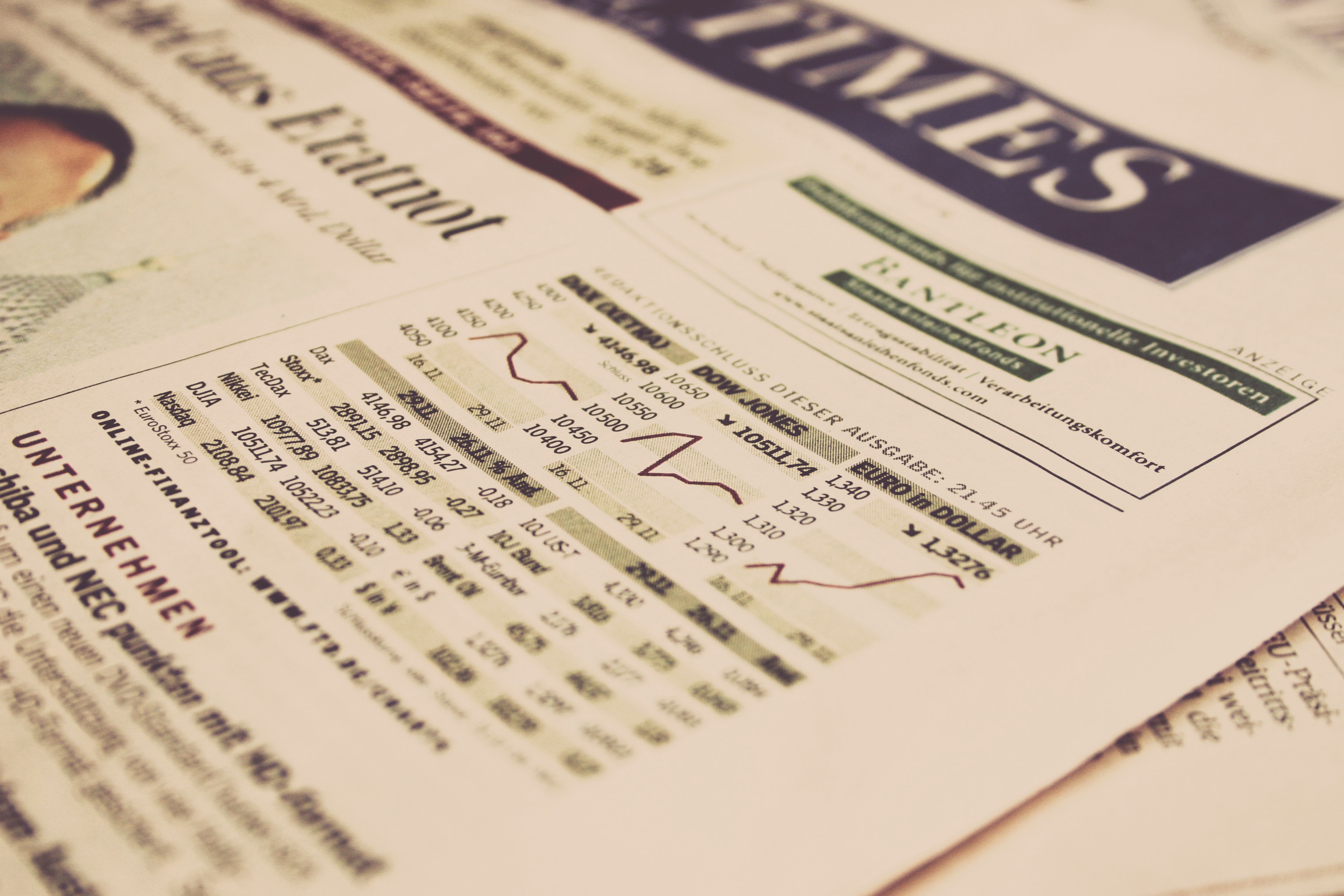By Brian Tiernan
You might have heard that the financial markets are in turmoil, particularly since the start of this year. There are many reasons for the volatility; Brexit, simmering trade wars and growth concerns in the world’s major economies to name just a few.
Oh yes, the financial markets can be exciting and terrifying. Their infinite capacity to make money (and lose money) attracts and repulses people in equal measure.
But what are they actually for and how do they affect you and your pension?
What are the financial markets for?
Financial markets are essentially designed to finance companies, projects and governments. Investors loan money to their favoured company via bonds or shares and expect a return either in the form of a coupon/dividend paid out to them from the company or the appreciation in value of the company’s stocks.
So far, so simple. But it gets a whole lot more complicated, as anyone who has seen The Big Short can attest. This is not an industry that makes things simple for the layman – just look at the jargon perpetuated by analysts and players.
Your closest encounter with the markets is probably through your pension
Most people’s only interaction with the financial markets is in the form of their pension. We put some money aside in a pension fund that is invested on our behalf by a life company in stocks and bonds. The value of investments goes up and down, but the logic goes that over a long enough period, there should be a net gain… however, it’s all about timing.
Any volatility (increases and decreases in the value of these investments) will not worry a 30 something who has another 35 years until retirement – the thinking is that the fund has time to recover from losses. These things tend to be cyclical.
But if you are coming up to retirement age and a recession hits, you could see all the gains built up over the life of the pension wiped out, just as you cash it in.
What options do I have to safeguard against the volatility of the market?
It is thought to be good practice to spread your investments across a number of asset classes. An asset class is a group of investment opportunities that have similar characteristics. Examples are shares, bonds, property and commodities.
There are perceived safe havens for investors, the key ones are generally accepted to be gold, Swiss francs and cash. They are not necessarily risk free, however. The first two are subject to the same market forces as stocks and shares while cash during a recession doesn’t offer protection against the decreasing purchasing power of money (inflation), which, in real terms, means you lose money.
If you have shares either in individual companies or wrapped up in a pension or investment product from a life company, you should spread your share portfolio across sectors and countries as well as industry type. This should protect you somewhat in the event of a similar crash to the 2008 one in which property and construction-related stock (including banks) took a major hit.
It pays to question your life company – or ask your financial adviser to find out – how your pension is invested, in detail. You can request to move money in and out of fund types to diversify your portfolio.
Real assets
Real assets in the form of infrastructure and real estate are worth considering for at least some of a pension pot. Real assets offer steady cashflows that are not necessarily linked to changes in financial markets.
Property, for instance, offers rental income and capital appreciation (in a properly functioning market).
Renewable energy infrastructure (such as solar farms, biomass, biogas, wind, hydro or energy-from-waste plants) offers similar returns and, in many cases, has the added security of a government-guaranteed income in the form of a tariff or incentive paid to the producer. Investment vehicles in this sector tend to offer a fixed return, which is inflation linked, over a fixed period.
To summarise, financial markets ebb and flow creating winners and losers. This is a fact and you should be aware that you could lose everything when investing, though the more you diversify in your share portfolio the more protected you are. Consider also real assets such as property and renewable energy projects, particularly where there is a fixed return, as a way of diversifying the risk.
When we consider how long we are living now, we really need to take an interest in our pension funds to make sure we have enough to sustain us over our potentially long ‘second lives’. Unfortunately, as recent history has shown, they can be decimated by volatility in the markets at just the wrong moment. Forewarned is forearmed.
Brian Tiernan is a Senior Analyst with Solar 21, a renewable energy project development company with assets under management in Italy and the UK and projects in development in the UK.
MB Planning Ltd. T/A Clear Financial is regulated by the Central Bank of Ireland. Registered in Ireland No. 494837 Registered Address: Rathcoole Premier Office Centre, Main Street, Rathcoole, Co Dublin.
Directors: Michael Bradley (MD), Ciaran Shanley.


